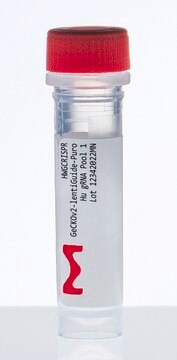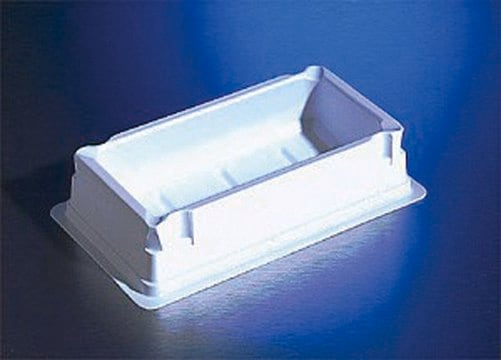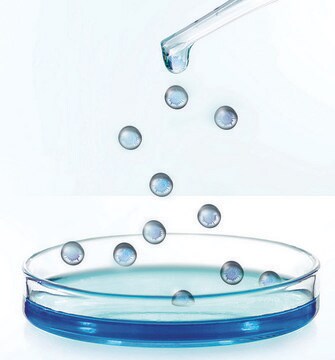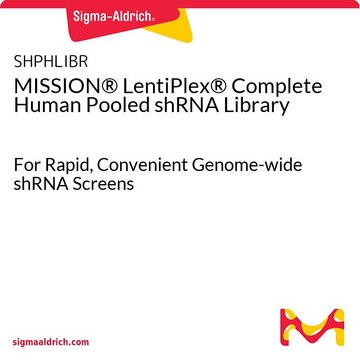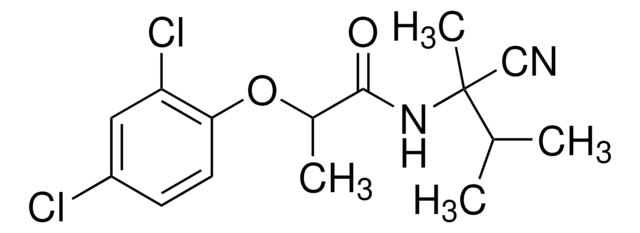HSANGERV
Sanger Arrayed Whole Genome Lentiviral CRISPR Library
Human, Virus Format
About This Item
Productos recomendados
Nivel de calidad
envase
pkg of 10 μL (384-well plate)
concentración
1x106 VP/ml (via p24 assay)
aplicaciones
CRISPR
Condiciones de envío
dry ice
temp. de almacenamiento
−70°C
¿Está buscando productos similares? Visita Guía de comparación de productos
Descripción general
Aplicación
Características y beneficios
- Vector: U6-gRNA/PGK-Puro-2A-BFP (gRNA only)
- Simplify the workflow with puromycin selection
- Illuminate CRISPR-expressing cells with BFP
Additional Features
- Better, not bigger: Two optimized clones per gene reduces the time, cost, and scale of screening experiments
- Ready-to-screen: Clones are arrayed in a robotics-friendly 384-well format for high throughput screening
- Collaborative: Real-time, library validation continues
For detailed information on the Sanger library, click here
Envase
Componentes
Request a Quote or More Information
Forma física
Otras notas
Productos recomendados
Información legal
Código de clase de almacenamiento
12 - Non Combustible Liquids
Clase de riesgo para el agua (WGK)
WGK 3
Punto de inflamabilidad (°F)
Not applicable
Punto de inflamabilidad (°C)
Not applicable
Certificados de análisis (COA)
Busque Certificados de análisis (COA) introduciendo el número de lote del producto. Los números de lote se encuentran en la etiqueta del producto después de las palabras «Lot» o «Batch»
¿Ya tiene este producto?
Encuentre la documentación para los productos que ha comprado recientemente en la Biblioteca de documentos.
Artículos
Genome-wide loss-of-function screening is a powerful approach to discover genes and pathways that underlie biological processes. Now complete knockout is achievable with two optimized gRNAs per gene. Minimized clone number ensures the most specific screening possible while controlling time and cost.
Get tips for handling lentiviruses, optimizing experiment setup, titering lentivirus particles, and selecting helpful products for transduction.
Protocolos
Learn about Sanger Sequencing steps or the chain termination method and how DNA sequencing works and how to read Sanger Sequencing results accurately for your research.
FACS (Fluorescence-Activated Cell Sorting) provides a method for sorting a mixed population of cells into two or more groups, one cell at a time, based on the specific light scattering and fluorescence of each cell. This method provides fast, objective, and quantitative recording of fluorescent signals from individual cells.
Nuestro equipo de científicos tiene experiencia en todas las áreas de investigación: Ciencias de la vida, Ciencia de los materiales, Síntesis química, Cromatografía, Analítica y muchas otras.
Póngase en contacto con el Servicio técnico